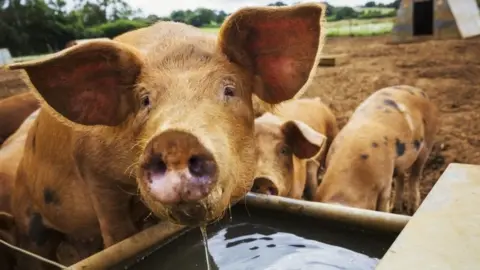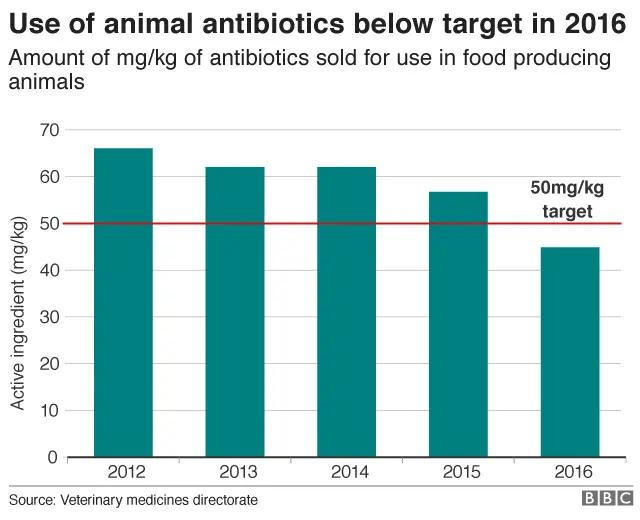Antibiotic use in meat revealed by UK supermarkets
 Science Photo Library
Science Photo LibraryThree UK supermarket chains have published figures on the amount of antibiotics used by their farm suppliers, in an effort to cut use of the medicines.
Marks and Spencer, Waitrose and Asda have all revealed the quantities of antibiotics in meat and dairy produce.
Campaigners have called on all supermarkets to follow their lead.
Overuse of antibiotics can cause drugs resistance leading to the prevalence of superbugs such as MRSA.
England's Chief Medical Officer, Dame Sally Davies warned in October that if antibiotics lost their effectiveness it would "spell the end to modern medicine".
Industry targets
The campaign group, the Alliance To Save Our Antibiotics, which was founded by charities Sustain, Compassion in World Farming and the Soil Association welcomed the move by the supermarkets, saying it was a good start.
Coilin Nunan, scientific advisor to the Alliance said: "The publication of this data should help drive average use across the farming industry down, as it illustrates the extent to which many other producers are still overusing antibiotics, despite recent cuts.
"We are also calling for all supermarkets to publish antibiotic-use data by farming system, so that consumers can compare free-range and organic farming with indoor farming and intensive systems."
Figures from all three supermarket chains show they are ahead of industry-wide targets on chicken farms.
Mr Nunan said Marks and Spencer figures showed their pig and chicken farmers were using less than one quarter of the UK averages.
He said antibiotic use in Waitrose's pig and chicken suppliers was about one third or less than industry averages and use in turkeys was about one sixth of the average.
Asda's figures showed its suppliers' usage was less than half the industry average for chickens, and for turkey it was less than a quarter but their pig survey was still in progress, he added.
Information on the different sectors is not comprehensive and varies in detail so it is not always possible to make direct comparisons.
The supermarkets follow industry standards set by the Responsible Use of Medicines in Agriculture Alliance which represents organisations involved in the food chain.
The UK Veterinary Antibiotics Resistance and Sales Surveillance Report 2016, released in October, showed sales of antibiotics for use in food-producing animals dropped by 27%, achieving a government-set target two years early.

Tesco, Sainsbury's, Morrisons, Lidl and Aldi do not at present publish data on antibiotic use.
Lidl said: "We are committed to meeting sector targets and fully support the disclosure of antibiotic usage, however we believe that it is important to support suppliers through the development of a centralised, industry-wide approach."
Morrisons said it was "open-minded" about publishing data. Tesco said it had a comprehensive plan to reduce antibiotic use, "including measuring and publishing progress against our commitments".
The British Retail Consortium, which represents the big supermarkets, said all its members advocated the responsible use of antibiotics and were working to reduce usage without any detrimental effect on animal welfare.
It's director of food policy, Andrew Opie, said: "All our members are collaborating with their suppliers to determine what data is available and the best way to communicate progress."
